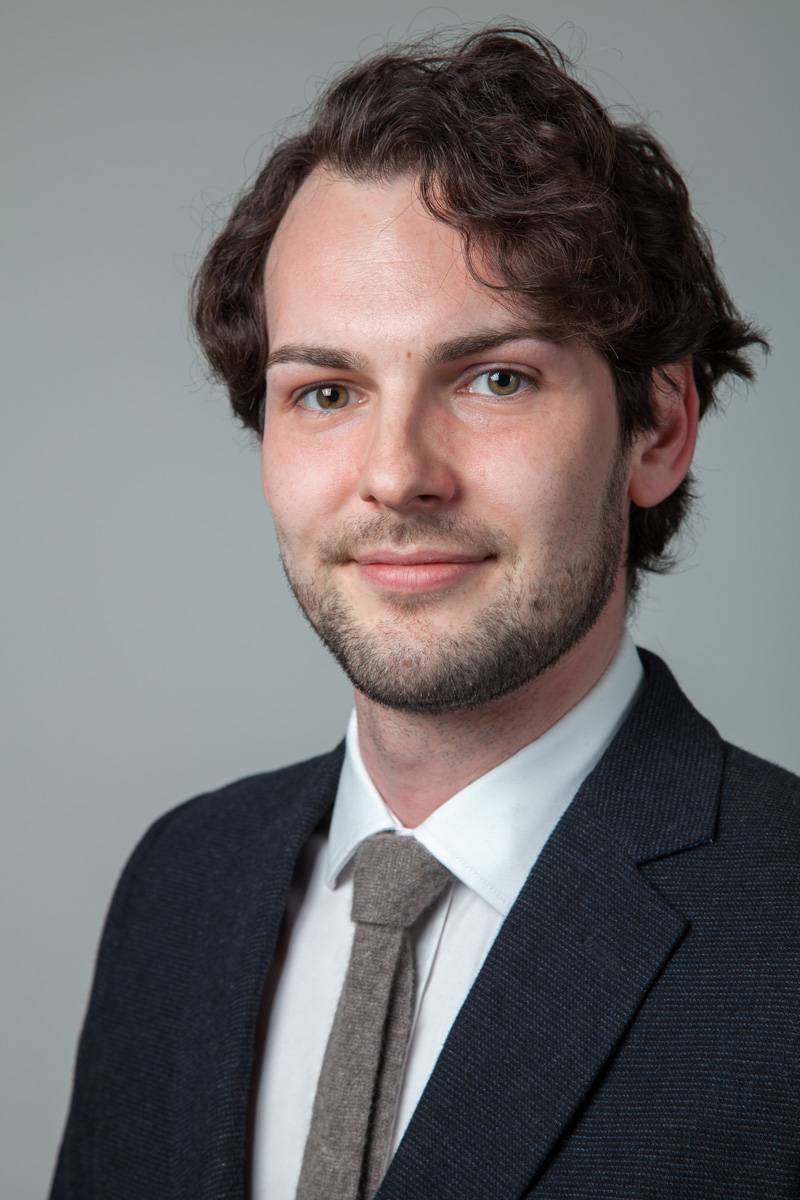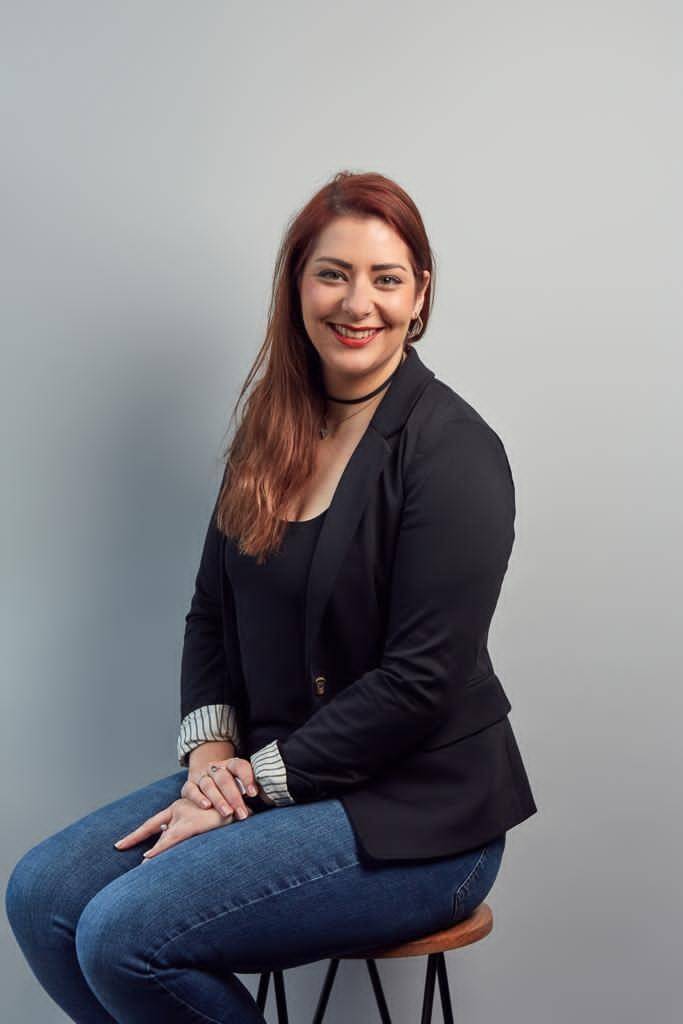
Making Sure ERGs are Inclusive of the B in LGBTQ+
Interviews
Simon Price and Rachel Gardham from S&P Global spoke to myGwork about their journeys as identifying as bisexual. Discussing why Bisexual Awareness Month is important to them, and advice they have for bisexual people who want to come out to their colleagues, they share their unique perspectives and experiences working for S&P Global.
Please introduce yourself and tell us about your role at your organization.
Simon: Hello! My name is Simon, and I am an editor working at S&P Global on the Commodity Insights chemicals desk in London, as well as the UK President of our Pride employee network. I moved to London when I took the job almost ten years ago after bouncing around a number of countries and cities. Outside of work, I’m a keen tabletop gamer and help run a local club. I’m also a keen foodie and love cooking. I came out as bisexual when I was 15.

Rachel: My name is Rachel Gardham, and I am one of the Global Diversity, Equity and Inclusion Leads here at S&P Global. I have a Masters in Gender, Sexuality and Culture, and have been working in the DEI space for over a decade now. I identify as bisexual/pansexual/queer and have done since I was around 17.

Why is bisexual awareness month important to you?
Simon: Bisexual awareness month is important to me as I feel there can be a lot of preconceived notions about being bi from both people inside and outside the LGBTQ+ community. So much of what Pride in general is about for me is being seen for who we are, and I think that picture can still be blurred a lot in regard to bisexuality.
Have you always been comfortable being out in the workplace?
Simon: While I came out socially when I was a teenager, coming out at work was a much longer process for me and didn’t happen until my current job at S&P Global. That was in part to the visibility of our Pride network, as well as more general conversations and trainings about inclusivity and discrimination.
I spent a lot of time prior to working here as an independent, working for very small companies. It came with a lot of fear that things could go wrong quickly and being open to the wrong person could see me lose income. I kept quiet in a lot of those situations.
Rachel: I’ve been fortunate that since I finished my Masters, I moved immediately into the DEI space, so it’s been pretty easy to be open. I’ve probably had more resistance personally than I have professionally.
What advice would you give to someone wanting to come out as bisexual in the workplace?
Rachel: My first instinct would be if you’re considering coming out to someone in the workplace – just do it. I know very few people who have said that coming out has been a bad thing for them overall; we exhaust so much energy when we’re hiding part of ourselves, and I think most people feel that weight lift when they come out. That being said, make sure it’s on your own terms and you feel ready. It’s your story, try not to let anyone else tell it for you.
What can ERG’s do to ensure they are inclusive of the B in LGBTQ+?
Simon: Taking the time to highlight this month is a small step, but an important one. A lot of bisexual people avoid LGBTQ+ spaces as they feel it isn’t for them, and it’s been important to me to make sure that our network is open to anyone who fits inside the queer umbrella. Bisexual identities exist in a broad range so I think it’s very important to keep language inclusive of whatever relationships or preferences someone may have, not to make assumptions and absolutely not to push people to reveal details about their identity they are uncomfortable doing.
What do you want to see more of in allyship to the bisexual community?
Simon: I have always seen a tendency to scrutinize people who identify as bisexual, as if to double check how queer they are. Bi identities are valid and varied, I’d like to see less questioning from people who are trying to be allies and more support in shutting people down when it happens.
Rachel: More trust & dialogue. Bisexuality is a vast spectrum, but it doesn’t seem to matter where you land on the spectrum there’s always someone who doesn’t ‘believe’ you for whatever reason. I’d like to see more trust in that we know who we are, we’re not necessarily unsure or ‘just experimenting’ (although it’s very much ok if you are).
I also think the bisexual community is way behind some other queer communities in terms of discussion and understanding. This trust and dialogue needs to come from both the straight and the queer community. I don’t know many bisexuals who haven’t received biphobia from the queer community and that’s a huge issue.
What are some of the common myths and misconceptions around bisexuality?
Simon: The most common misconception is that bi people don’t exist, and this can come from both straight and queer people. I’ve found judgement on my identity has often been made based on a relationship I’ve been in at the time, rather than what I have said. Gatekeeping becomes a big problem because of this.
Greedy is a word that’s been thrown at me a lot as well, assuming some kind of promiscuity or hypersexuality. I’ve previously had a partner break up with me as they assumed I would cheat on them with someone of the opposite gender.
Rachel: I feel like I could probably write an entire essay on this one. Everything that was mentioned above, plus all the classics; bisexuals are greedy, hyper-sexual, unsure, unfaithful, untrustworthy, incapable of monogamy, going through a phase, using it as a steppingstone for coming out as gay or lesbian, this list goes on.
Bisexuality is such a vast spectrum, and many of the things I’ve listed above may well be true, you may be going through a phase or prefer open relationships, and that’s completely fine – it’s your choice. What’s not fine is the assumption that it’s representative of everyone. I think we need to expand how people view what bisexuality means and create more acceptance around individual choices and identities.
What does authentic bisexual representation look like for you? Is this important to you?
Rachel: For me, authentic representation would be based on showing a wider range of bisexual identities, and, importantly, highlighting people who are comfortable in their identity. The media has done an excellent job at reinforcing many of the myths and misconceptions listed above, and although I think we’ve seen better representation in recent years, we’ve still got a long way to go to change that narrative.
I think it’s important to have more and better representation across the whole community. I didn’t grow up with a lot of bisexual role models and I’d love to see that change for future generations.
What can the rest of the LGBTQ+ community do to ensure they stand by all bisexual people?
Simon: Help erase biphobia wherever it’s seen, but especially within the community. There’s a statistic somewhere that around 40% of bi people have never been to LGBTQ+ places and I think a lot of that can come down to feeling welcome, to feeling like this is a space for them as well. I had some bad experiences with gatekeeping when I was younger trying to enter these spaces, and it put me off for a long time. Thankfully I gave it another chance and have found some wonderful space and fantastically supportive people to call friends.

